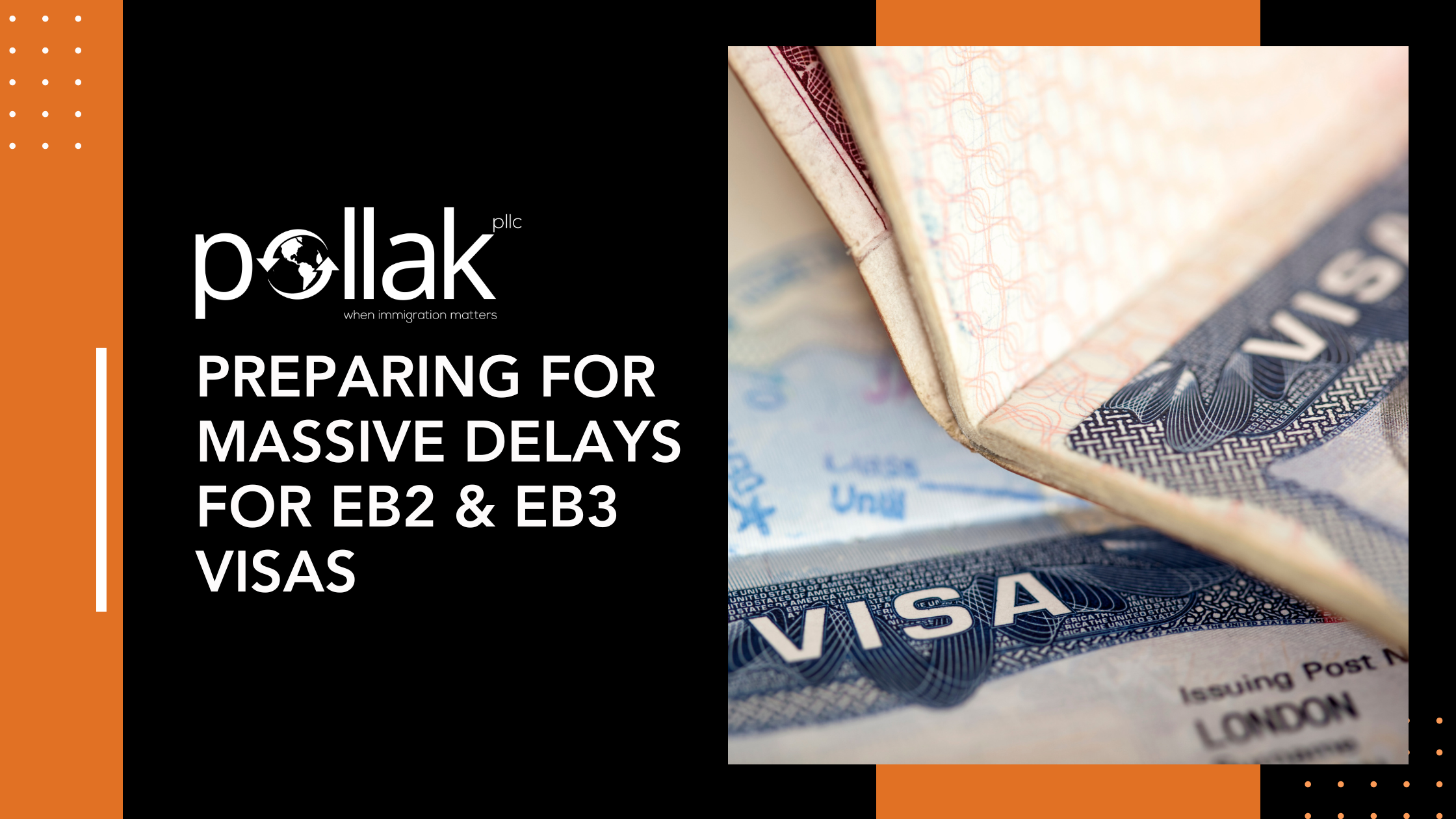
Every year, the U.S. puts a cap on the number of visa applications that will be reviewed and accepted. Due to the popularity of certain visa categories, applicants experience nerve-wracking delays, and their future life in the U.S. is unclear. The backlog for EB-2 and EB-3 visas stands as a significant challenge for aspirants looking to cement their future on American soil. The U.S. economy has many job opportunities, attracting a skilled workforce worldwide. Conversely, an aging workforce necessitates replenishment by foreign talent. These factors create a high demand for EB-2 and EB-3 visas, as they can provide permanent residency to professionals and skilled and unskilled workers.
The Visa Cap and Its Implications
Annually, the U.S. imposes a cap of 140,000 visas for the EB categories, a figure that falls short of the increasing demand. This limitation is a critical factor contributing to the backlog, representing not just numbers but the dreams and aspirations of countless individuals. The U.S. economy, with its myriad of job opportunities and an aging workforce, needs replenishment by foreign talent, yet the cap restricts this necessary influx of skilled professionals.
The United States Citizenship and Immigration Services (USCIS), responsible for visa adjudication, is grappling with its own challenges, including staffing shortages, rising application volumes, and complex cases, all of which contribute to slower processing times. These delays, exacerbated by the COVID-19 pandemic's operational disruptions, add to the growing queue of applicants and their families, causing significant uncertainty for those awaiting a decision on their future in the U.S.
The consequences of these delays are profound. Long waiting periods can jeopardize employment prospects, limit access to social benefits, and restrict international travel. Above all, they cast a shadow of uncertainty over the lives of immigrants and their families in the United States, affecting their ability to plan and build their future.
Potential Solutions and the Role of Legal Assistance
Tackling the EB-2 and EB-3 visa backlog requires several key measures, including increasing visa allocations, streamlining USCIS processes, and implementing policy reforms to simplify green card acquisition. These changes are essential to align the visa system with the current demand for skilled foreign workers. However, the uncertainty surrounding the government's implementation of these reforms leaves many applicants in a state of flux.
During this period of uncertainty, the role of immigration attorneys becomes crucial for individuals caught in the backlog. Lawyers specialized in immigration law can offer essential guidance, ensuring applications are accurately and timely filed. They stay updated on policy changes, providing vital information to navigate the process effectively. Additionally, they help set realistic expectations about the application's outcome, offering alternative solutions where feasible. An immigration attorney is a key ally in navigating the complexities of the visa process, offering applicants a better chance to manage their immigration journey successfully.
The backlog for EB-2 and EB-3 visas is a significant hurdle for many aspiring immigrants. In these challenging times, the role of experienced immigration attorneys becomes more critical than ever. At Pollak PLLC, we are committed to helping individuals and families through the immigration process. If you are affected by the EB visa backlog, we encourage you to reach out to us. Let's work together to find the best possible solution for your immigration needs and help you realize your American dream—call (214) 305-2266 to schedule your complimentary initial consultation.




%20Expedite%20It.webp)